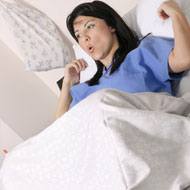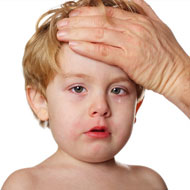- Hip Pain During Pregnancy
- Hot Flashes During Pregnancy
- Heartburn During Pregnancy
- Cold Sores During Pregnancy
- Canker Sores During Pregnancy
- Mouth Sores During Pregnancy
- Tongue Sores During Pregnancy
- Itching During Pregnancy
- IBS During Pregnancy
- Implantation During Pregnancy
- Infections During Pregnancy
- Indigestion During Pregnancy
- Increased Heart Rate During Pregnancy
- Incontinence During Pregnancy
- Hernia During Pregnancy
- Jelly Discharge During Pregnancy
- Sacroiliac Joint During Pregnancy
- Kidney Pain During Pregnancy
- Kidney Failure During Pregnancy
- Kidney Changes During Pregnancy
- Knee Pain During Pregnancy
- Leg Cramps During Pregnancy
- Lower Back Pain During Pregnancy
- Lightheadedness During Pregnancy
- Labia Pain During Pregnancy
- Malnutrition During Pregnancy
- MRSA During Pregnancy
- Mild Cramping During Pregnancy
- Nausea During Pregnancy
- Ligament Pain During Pregnancy
- Muscle Spasms During Pregnancy
- Muscle Pain During Pregnancy
- Neck Pain During Pregnancy
- Night Sweats During Pregnancy
- Nerve Pain During Pregnancy
- Nipple Discharge During Pregnancy
- Nightmares During Pregnancy
- Nipples Burning During Pregnancy
- Nipples Peeling During Pregnancy
- Numb Hands During Pregnancy
- Ovary Pain During Pregnancy
- Ovarian Cyst During Pregnancy
- Ovulation During Pregnancy
- Ovarian Cancer During Pregnancy
- Overheating During Pregnancy
- Overeating During Pregnancy
- Normal Weight Gain During Pregnancy
- Joint Pain During Pregnancy
- Jaw Pain During Pregnancy
- Jaundice During Pregnancy
- Joint Stiffness During Pregnancy
- Ketones in Urine During Pregnancy
- Kidney Infection During Pregnancy
- Low Blood Pressure During Pregnancy
- Loss of Appetite During Pregnancy
- Low Iron During Pregnancy
- Losing Weight During Pregnancy
- Nipple Pain During Pregnancy
- Left Side Pain During Pregnancy
- Lactose Intolerance During Pregnancy
- Moles During Pregnancy
- Leaking & Leg Numbness During Pregnancy
- Labia Varicose Veins During Pregnancy
- Blurred Vision During Pregnancy
- Flu During Pregnancy
- HIV In Pregnancy
- Acne During Pregnancy
- Abdominal Tenderness during Pregnancy
- Swelling During Pregnancy
- Vaginal Swelling during Pregnancy
- Body Aches during Pregnancy
- Body Acne during Pregnancy
- Cervical Fluid during Pregnancy
- Dilation In Pregnancy
- Diverticulitis during pregnancy
- Bleeding During Pregnancy
- Upper abdominal pain during pregnancy
- Abdominal Pain During Pregnancy
- Back and Abdominal Pain During Pregnancy
- Migraines During Pregnancy
- Kidney Stones During Pregnancy
- Arthritis During Pregnancy
- Back Pain During Pregnancy
- Stress During Pregnancy
- Mood Swings During Pregnancy
- Insomnia During Pregnancy
- Bacterial Vaginosis Pregnancy
- Hellp Syndrome Pregnancy
- Epilepsy During Pregnancy
- Pregnancy Placental Abruption
- PTU During Pregnancy
- Posterior Pelvic Pain During Pregnancy
- Diarrhea During Early Pregnancy
- Early Pregnancy Cramping
- Lower Abdominal Pain During Pregnancy
- Menstrual Cramps Pregnancy
- Belly Sizes During Pregnancy
- Gout In Pregnancy
- Diarrhea During First Trimester
- Abdominal Pain During Pregnancy First Trimester
- Vaginal Bleeding Pregnancy Causes
- Frequent Urination During Pregnancy
- Hair Loss During Pregnancy
- Tattoo During Pregnancy
- Vaginal Bleeding During Pregnancy
- Vaginal Discharge During Pregnancy
- Snoring During Pregnancy
- Skin Discoloration During Pregnancy
- Belly Growth During Pregnancy
- Sciatica During Pregnancy
- Shortness of Breath During Pregnancy
- Saliva in Pregnancy
- Premature Rupture Of Membranes In Pregnancy
- Tingling Hands Pregnancy
- Pelvic Girdle Pain During Pregnancy
- Protruding Navel During Pregnancy
- Hemorrhoids During Pregnancy
- Forgetfulness During Pregnancy
- Flatulence During Pregnancy
- Fainting During Pregnancy
- Light-headedness During Pregnancy
- Types of Vaginal Discharge During Pregnancy
- Sciatica Pain Treatment During Pregnancy
- Pelvic Discomfort During Pregnancy
- Migraine Headache During Pregnancy
- Migraine Relief During Pregnancy
- Nosebleeds During Pregnancy
- Dysgeusia During Pregnancy
- Bloating During Pregnancy
- Chloasma During Pregnancy
- Fatigue During Pregnancy
- Pitting Edema During Pregnancy
- Mask of Pregnancy
- Spontaneous Abortion
- Causes Of Spontaneous Abortion
- Restless Leg Syndrome During Pregnancy
- Excess Saliva During Pregnancy
- Migraine Treatment During Pregnancy
- High Blood Pressure During Pregnancy
- Sore Abdominal Muscles During Pregnancy
- Symphysis Pubic Dysfunction During Pregnancy
- Treating High Blood Pressure During Pregnancy
- Prugio of Pregnancy
- Hemorrhoid Treatment Pregnancy
- Fighting Pregnancy Fatigue
- Swollen Feet Pregnancy Remedy
- Nosebleed Early Pregnancy
- Vaginal Discharge in Early Pregnancy
- Cervical Dilation Pregnancy
- Clumsiness During Pregnancy
- Dizziness in Pregnancy
- Edema During Pregnancy
- Swollen Ankles During Pregnancy
- Hard Belly During Pregnancy
- Insomnia Early Pregnancy
- Effects of Smoking During Pregnancy
- Smoking During Pregnancy Risks
- Soft Cervix During Pregnancy
- Symptoms Of Depression During Pregnancy
- Weight Gain During Pregnancy
- Depression During Pregnancy
- Alcohol Effects During Pregnancy
- Alcohol During Pregnancy
- Marijuana Smoking During Pregnancy
- Quitting Smoking During Pregnancy
- Smoking During Pregnancy
- Cervix Bleeding Pregnancy
- Closed Cervix Pregnancy
- Stress During Pregnancy Effects
- Reducing Stress During Pregnancy
- Treating Constipation During Pregnancy
- Viral Infection During Pregnancy
- Cervix During Pregnancy
- Open Cervix During Pregnancy
- Small Cervix And Pregnancy
- Swine Flu During Pregnancy
- High Cervix Pregnancy
- Cervix Size During Pregnancy
- Pregnancy Breast Cancer
- Constipation During Pregnancy
- Friable Cervix and Pregnancy
- Checking Cervix During Pregnancy
- Low Cervix During Pregnancy
- Control Weight Gain During Pregnancy
- Weight Gain During Pregnancy Week By Week
- Tooth Decay During Pregnancy
- Stress In Early Pregnancy
- Tooth Extraction During Pregnancy
- Working During Pregnancy
- Toothache During Pregnancy
- Tooth Pain During Pregnancy
- Long Cervix During Pregnancy
- Thin Cervix During Pregnancy
- Cervix Changes In Pregnancy
- Itchy Belly During Pregnancy
- Low Platelets During Pregnancy
- Pregnancy Metallic Taste
- Itchy Skin During Pregnancy
- Brown Discharge During Pregnancy
- Pregnancy Changes
- Chickenpox And Pregnancy
- Cholestasis of Pregnancy
- DVT During Pregnancy
- Fibroid Uterus During Pregnancy
- Fifth Disease during Pregnancy
- Yeast Infection during Pregnancy
- Pelvic Arthropathy During Pregnancy
- Diabetes During Pregnancy
- Cervical Cancer During Pregnancy
- Sexually Transmitted Diseases During Pregnancy
- Thyroid Disease During Pregnancy
- Urinary Tract Infections During Pregnancy
- Hyperthyroid During Pregnancy
- Hypothyroid During Pregnancy
- Placenta During Pregnancy
- Dermatoses Of Pregnancy
- Gestational Trophoblastic Diseases During Pregnancy
- Anaemia During Pregnancy
Jock Itch in Pregnant Women
During pregnancy, an expectant mother experiences an itching sensation very often, primarily around the tummy region. This is mainly the result of the stretching of the skin due to weight gain plus water retention. In addition to these reasons, itchy skin could also be caused by dryness triggered by the hormonal changes that occur in the body as a result of the pregnancy as well as microbial infections due to a compromised immune system.
One of the most embarrassing experiences linked with itching is jock itch in pregnant women. The term jock itch is used for a fungal infection that is caused by mold like fungi called dermatophytes.
These microscopic creatures live on dead skin, nail and hair tissue. They need a moist, warm area to breed and the insides of the thighs are ideal for this purpose. Jock itch and pregnancy are a common combination as women are prone to perspire more as a result of the changed hormonal pattern in the body. This leaves the area moist. In addition, since the immune system becomes weak, infections become common. Friction caused by clothes rubbing against the skin or the thighs rubbing against each other as a result of weight gain could be responsible for jock itch. Furthermore, the expanding waistline makes cleaning the groin and thigh area thoroughly, a bit difficult, in most cases. This is seen mainly towards the end of the pregnancy term. Itchy and burning sensations accompanied by redness or soreness of the skin, in the groins, inner thighs and in some cases, the anus, are common indicators of jock itch during pregnancy. A red, raised or scaly rash that generally starts in the groin area may also develop.
Sometimes, blisters may appear. These blisters tend to ooze. This form of fungal infection must not be ignored as it could spread to the anus, increasing the discomfort manifold.
Good hygiene is the basic technique for keeping away this fungal infection. Washing the affected area with a warm, salt water solution is recommended as it helps to combat the growth of these microbes. Highly perfumed skin products, including soap should be avoided. After wash, the area must be dried well so as to ensure that no moisture remains. Opting for cotton undergarments and loose fitting clothes is advisable to minimize the risks of this disease. Since it is contagious, sharing of personal care products as well as towels must be avoided completely. Consulting a doctor is a must to curb the spread of infection as well as to confirm the use of any ointments or any form of medication.


